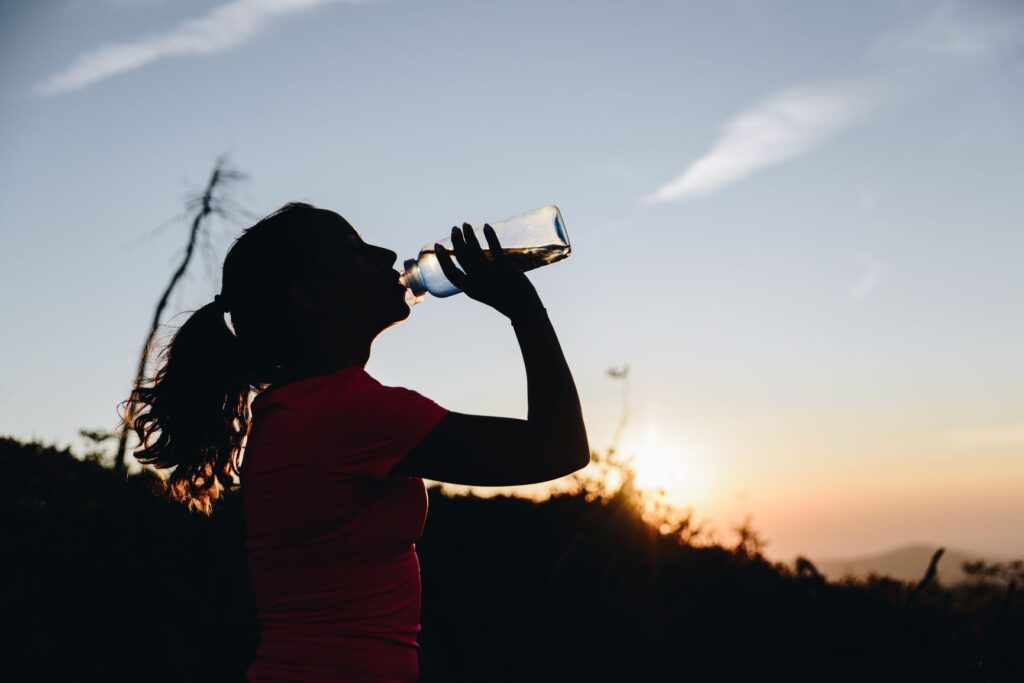Though I primarily run in the morning, I’ve noticed that the later in the day I go, the faster I am (whether this is due to being more warmed up or less sleepy or some other factor, I haven’t successfully determined). One of the obstacles to making this my normal, though, is that elusive mental calculation that determines the right nutrition/hydration/time-before-run combo that doesn’t result in side aches, mid-run crashes, or “I-ate-too-much” sluggishness—an issue I encountered last night when I went for a spontaneous evening run following what was, in retrospect, a regrettably large meal.
Seeking guidance, I turned to Katie Nelson, a registered dietitian who contracts with Physical Therapy Associates and works with nutrition clients through 6th Avenue Pharmacy, in addition to being a certified strength and conditioning coach and a runner herself. She offered professional advice on what to eat and drink before, during, and after a run—plus what to avoid.
When it Comes to Food, Timing is Everything
If you’re three or four hours out from your run, a well-balanced meal will do you good. “You can get in everything—protein, carbs, fat—and it gives your body time to adjust,” says Nelson. Once you’re in that hour to half-hour pre-run window, simplify. “Avoid high-fiber foods, avoid high-fat foods, stick to mostly carbohydrates with a little bit of protein,” she advises, or take in some liquid nutrition.
Within the hour post-run, look to refuel with something that’s approximately a 4:1 carb to protein ratio. One choice Nelson recommends is a smoothie that includes protein powder, greens, and electrolytes.
Hydration is Key
“Especially this time of year when it’s warmer, hydration takes priority over nutrition” and will have a bigger impact on performance, says Nelson. When you’re not properly hydrated, your body can pull water from the gut, which can cause GI issues. Focus on hydration not just immediately before, during, or after a run, but in a more holistic way. Aim for getting in half your body weight in ounces of water daily as a baseline, Nelson says.
Additionally, after running “for every pound you lose from sweat, replace it with 16 ounces of water,” says Nelson. To determine sweat loss, weigh yourself before and after your run. Start rehydrating within 30 minutes of completing your workout.

Foods to Eat and Avoid
“Really, you want to get your vegetables in at other meals” versus shortly before a run, or during a run, says Nelson. If you’re fueling an hour or two beforehand, avoid healthy but hard-to-digest options like beans, greens or fibrous fruits such as blueberries or apples. Instead, try a banana, a hard-boiled egg, or a couple of slices of turkey and a roasted sweet potato. Every body is different; experiment to find what works for you.
When Fuel and Hydration Are—and Aren’t—Necessary
For a training run (not a race), plan to take in fluids if you’re running an hour or more, and take in nutrition (she recommends dried bananas) if you’re running for more than two hours, Nelson says. Water is probably sufficient for training runs under an hour in duration, but for longer runs consider adding electrolytes, which are beneficial “especially with the heat.” She’s a fan of a local product called Lyte Balance.
Stay hydrated and well-fueled, and enjoy a fun, strong summer of running.
Sarah Hauge is a writer and editor who lives in Spokane with her husband and two children. She wrote about creating shady outdoor spaces in the previous issue.













